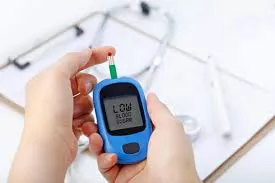Hypoglycemia, commonly referred to as low blood sugar, is a condition where blood glucose levels drop below the normal range, typically below 70 mg/dL. This can lead to symptoms such as shakiness, sweating, confusion, irritability, and in severe cases, loss of consciousness or seizures. While hypoglycemia is often associated with diabetes management, particularly insulin therapy and certain oral medications, it can also be triggered by various supplements. This article delves into the supplements that can cause hypoglycemia, their mechanisms of action, and how individuals can manage and prevent low blood sugar levels when using these supplements.
Supplements and Hypoglycemia: The Connection
Supplements are widely used to enhance health and manage various conditions. However, some supplements have the potential to lower blood glucose levels, which can lead to hypoglycemia, especially in individuals with diabetes or those on glucose-lowering medications. Understanding which supplements can cause hypoglycemia and how they interact with the body’s metabolism is crucial for preventing and managing this condition.
Common Supplements That Can Cause Hypoglycemia
Chromium
Chromium is an essential trace mineral that plays a significant role in carbohydrate and lipid metabolism. It enhances the action of insulin, which helps lower blood sugar levels. While chromium supplements are often used to improve blood glucose control in people with diabetes, excessive intake can lead to hypoglycemia, especially when combined with other glucose-lowering medications.
- Mechanism: Chromium enhances insulin sensitivity, facilitating glucose uptake by cells.
- Risk: Increased risk of hypoglycemia when taken with insulin or oral hypoglycemic agents.
- Dosage: The recommended daily intake for adults ranges from 20 to 35 micrograms. Higher doses should be monitored by healthcare professionals.
Berberine
Berberine is a compound found in several plants, including goldenseal and barberry. It is known for its blood glucose-lowering effects and is often used as a natural supplement for managing diabetes.
- Mechanism: Berberine activates AMP-activated protein kinase (AMPK), which helps regulate glucose and lipid metabolism.
- Risk: Can cause hypoglycemia when combined with insulin or other antidiabetic medications.
- Dosage: Typical doses range from 500 to 1,500 mg per day, divided into multiple doses.
Bitter Melon
Bitter melon (Momordica charantia) is a fruit commonly used in traditional medicine for its antidiabetic properties. It contains compounds that mimic insulin and help lower blood sugar levels.
- Mechanism: Enhances glucose uptake and utilization, inhibits glucose production in the liver.
- Risk: May cause hypoglycemia, particularly in individuals taking other glucose-lowering agents.
- Dosage: Commonly used doses range from 500 to 2,000 mg per day.
Gymnema Sylvestre
Gymnema Sylvestre is an herb used in traditional Ayurvedic medicine to treat diabetes. It is known for its ability to lower blood glucose levels.
- Mechanism: Increases insulin secretion, promotes regeneration of pancreatic beta cells, and enhances glucose utilization.
- Risk: Can lead to hypoglycemia, especially when taken with insulin or other antidiabetic medications.
- Dosage: Typical doses range from 200 to 400 mg per day.
Aloe Vera
Aloe vera is widely used for its medicinal properties, including its potential to lower blood glucose levels.
- Mechanism: Improves insulin sensitivity and increases glucose uptake.
- Risk: May cause hypoglycemia when used in conjunction with other glucose-lowering agents.
- Dosage: The recommended dose for blood sugar control ranges from 15 to 50 ml of aloe vera juice per day.
Alpha-Lipoic Acid (ALA)
Alpha-lipoic acid is an antioxidant that is used to manage neuropathy and improve glucose metabolism.
- Mechanism: Enhances insulin sensitivity and promotes glucose uptake by cells.
- Risk: Can cause hypoglycemia, particularly when combined with other hypoglycemic agents.
- Dosage: Common doses range from 300 to 600 mg per day.
Fenugreek
Fenugreek is an herb with seeds that have been traditionally used to manage diabetes.
- Mechanism: Contains soluble fiber that delays glucose absorption, and compounds that increase insulin sensitivity.
- Risk: May cause hypoglycemia when taken with other glucose-lowering medications.
- Dosage: Typical doses range from 5 to 30 grams of fenugreek seeds per day.
Cinnamon
Cinnamon is a popular spice with compounds that have been shown to improve blood glucose levels.
- Mechanism: Increases insulin sensitivity and mimics insulin activity.
- Risk: High doses can lead to hypoglycemia, especially in individuals on glucose-lowering therapy.
- Dosage: Doses for blood sugar control range from 1 to 6 grams per day.
Banaba Leaf Extract
Banaba leaf extract contains corosolic acid, which has glucose-lowering properties.
- Mechanism: Enhances glucose uptake and improves insulin sensitivity.
- Risk: Can cause hypoglycemia when used with other antidiabetic agents.
- Dosage: Typical doses range from 16 to 48 mg of corosolic acid per day.
American Ginseng
American ginseng is known for its ability to improve blood glucose control.
- Mechanism: Enhances insulin secretion and sensitivity.
- Risk: May cause hypoglycemia when combined with other glucose-lowering agents.
- Dosage: Common doses range from 200 to 400 mg per day.
Managing Hypoglycemia Risk with Supplements
When using supplements that have the potential to lower blood glucose levels, it is essential to take steps to prevent and manage hypoglycemia:
- Consult with Healthcare Professionals: Before starting any new supplement, especially if you have diabetes or are on glucose-lowering medications, consult with a healthcare provider to ensure safety and appropriate dosing.
- Monitor Blood Glucose Levels: Regularly monitor blood glucose levels to detect early signs of hypoglycemia and adjust supplement intake or medication dosages as needed.
- Adjust Medication Doses: If you are taking medications for diabetes, your healthcare provider may need to adjust the doses to prevent hypoglycemia when adding supplements.
- Be Aware of Symptoms: Recognize the early symptoms of hypoglycemia, such as shakiness, sweating, confusion, and irritability, and know how to treat them promptly with fast-acting carbohydrates.
- Educate Yourself: Learn about the specific supplements you are taking, their mechanisms of action, and their potential interactions with medications.
See also: What’s the Definition and Implication of Hypoglycemia in Child
Conclusion
While supplements can offer various health benefits, including improved blood glucose control, they can also pose risks of hypoglycemia, particularly in individuals with diabetes or those taking glucose-lowering medications. Understanding the mechanisms by which these supplements lower blood sugar levels, the associated risks, and how to manage and prevent hypoglycemia is crucial for safe and effective use. By consulting with healthcare professionals, monitoring blood glucose levels, and being aware of symptoms, individuals can minimize the risk of hypoglycemia while benefiting from the positive effects of these supplements.
Related topics:
What’s the Connection of Chronic Kidney Disease and Hypoglycemia


























